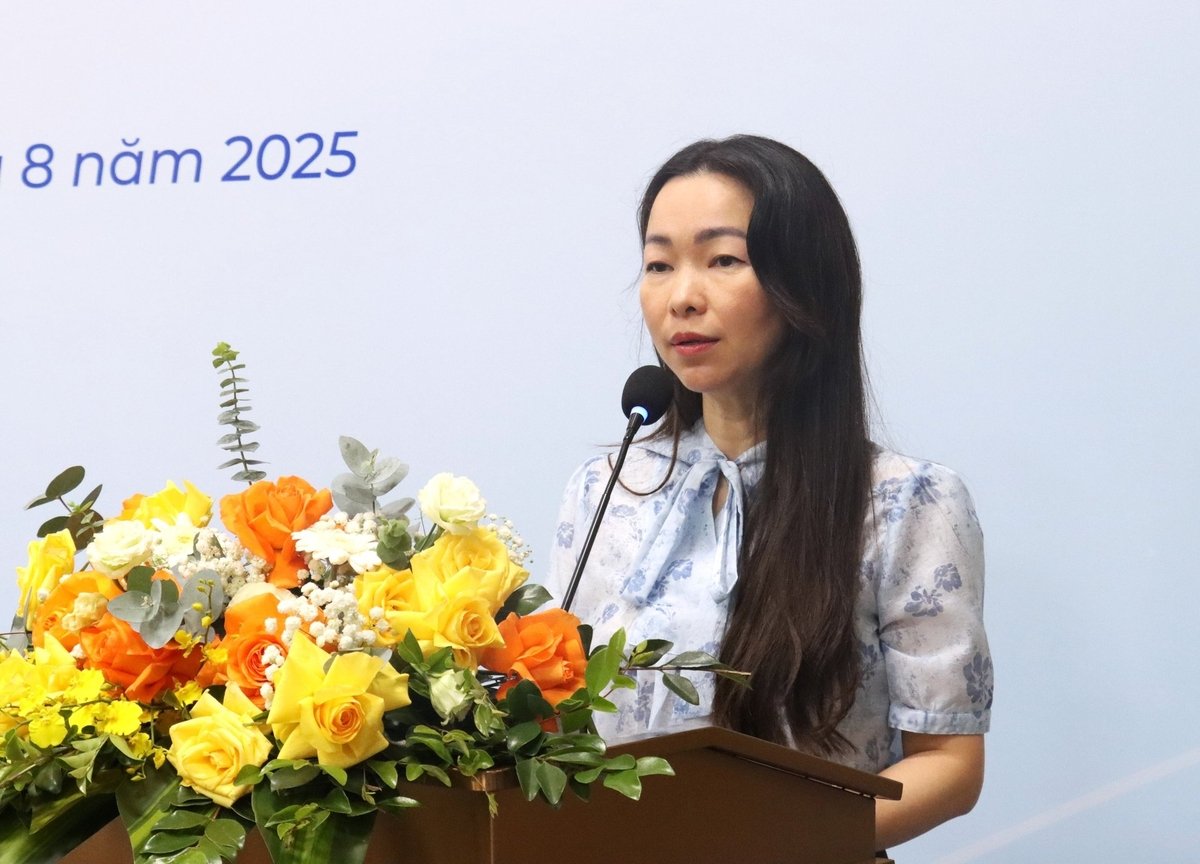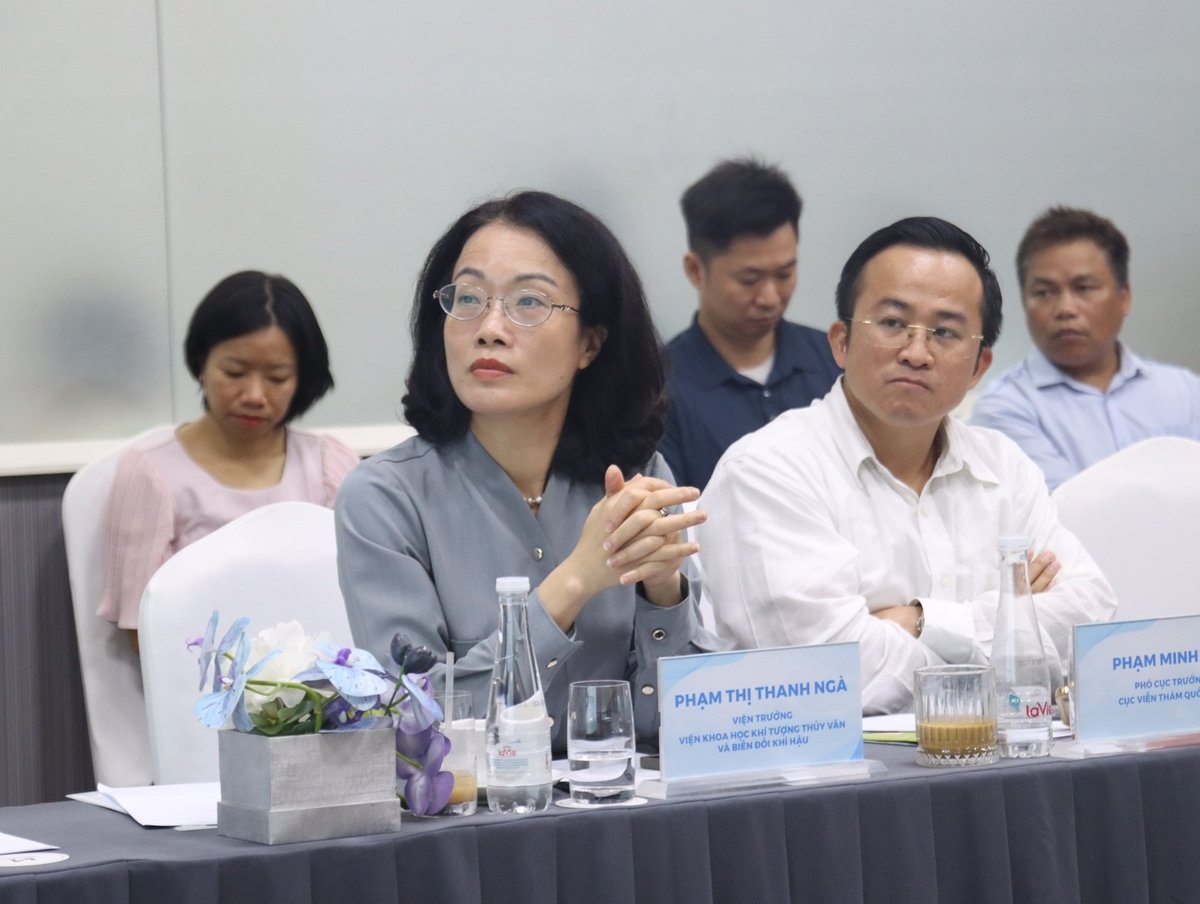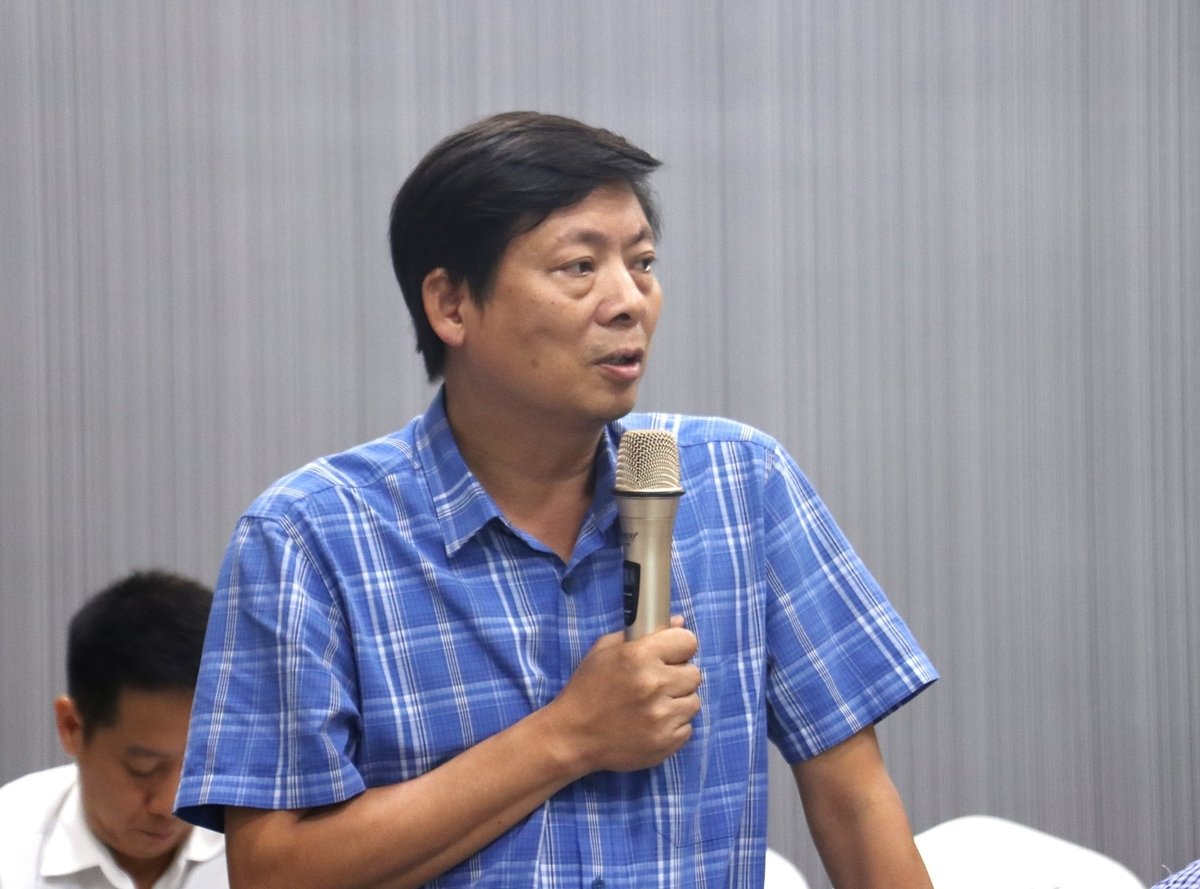November 15, 2025 | 01:51 GMT +7
November 15, 2025 | 01:51 GMT +7
Hotline: 0913.378.918
November 15, 2025 | 01:51 GMT +7
Hotline: 0913.378.918
On August 21 in Hanoi, the Department of Climate Change organized a consultation workshop on the monitoring and evaluation report of climate change adaptation activities in agriculture and the environment. The draft report has initially shown positive results.
Vietnam, with its long coastline, diverse terrain, and high dependence on natural resources, is considered one of the countries most severely affected by climate change. Statistics in recent years show that 20 out of 21 types of natural disasters have occurred in the country, from storms, floods, and droughts to saltwater intrusion, directly impacting people’s lives, livelihoods, and health, especially vulnerable communities. In this context, strengthening resilience and adapting to climate change is not only a development requirement but has become a matter of survival.

Ms. Mai Kim Lien, Deputy Director of the Department of Climate Change, shared insights on Vietnam’s legal framework for climate change adaptation. Photo: Hoang Hien.
According to Ms. Mai Kim Lien, Deputy Director of the Department of Climate Change, recognizing the urgency of the issue, the Government of Vietnam has introduced a number of key policies. The National Climate Change Adaptation Plan for the period 2021–2030, with a vision to 2050, was approved under Decision No. 1055/QD-TTg in 2020 and updated by Decision No. 1422/QD-TTg in 2024, thereby establishing a legal framework for ministries, sectors, and localities to take action.
In addition, Decision No. 148/QD-TTg of 2022 officially promulgated the national Monitoring and Evaluation (M&E) System for climate change adaptation activities, which has become a foundational tool for state management in this field. Under these regulations, all ministries, ministerial-level agencies, and provincial People’s Committees are required to monitor, evaluate, and report on adaptation activities within their respective mandates.
In recent times, the Department of Climate Change has taken the lead in drafting the monitoring and evaluation report on climate change adaptation activities in the fields of agriculture and environment, while also preparing an implementation plan for Decision 148 of the Ministry of Natural Resources and Environment. The workshop was held with the aim of consulting experts, scientists, and management agencies to ensure that the report is comprehensive, practical, and feasible for implementation.
Between 2020 and 2024, the Ministry of Agriculture and Environment issued six legal documents and 14 strategies, plans, and master plans related to climate change adaptation, while also drafting seven additional documents. Climate change considerations have been increasingly integrated into key sectoral strategies and master plans adopted in 2024, such as the National Forestry Master Plan, the Master Plan on the Protection and Exploitation of Fisheries Resources, the Master Plan on the System of Fishing Ports and Storm Shelters, as well as water resources planning for major river basins. This marks an important step forward in embedding climate adaptation as a core component of Vietnam’s socio-economic development strategy.
In addition, international cooperation in the climate field has been expanded, enabling the mobilization of financial, technical, and knowledge resources from a wide range of partners. Communication and community education activities have also been carried out in diverse forms, contributing to improved awareness and adaptive capacity. As a result, most of the tasks set for 2024 were completed on schedule, reflecting effective coordination among ministries, sectors, and localities.
However, the workshop also highlighted a number of persistent challenges. Data for assessing resilience and adaptive capacity in many sectors, particularly agriculture, remain limited and fragmented. Many key indicators can only be collected through field surveys, while funding for such investigations is insufficient. In addition, the legal framework and technical standards in certain areas are not yet fully developed, making measurement and comparison difficult.

Experts shared their inputs at the workshop. Photo: Hoang Hien.
The workforce dedicated to climate change, especially at the local and enterprise levels, remains limited and unstable. The scaling up of adaptation models has been slow, while early warning infrastructure in many remote and mountainous areas is still inadequate to ensure timely delivery of information to communities. Communication efforts often remain campaign-oriented and have yet to fully address the practical needs of local populations.
Experts also emphasized challenges in evaluation methodologies. According to Ms. Pham Thi Thanh Nga, Director of the Viet Nam Institute of Meteorology, Hydrology and Climate Change, the current indicator system still lacks quantitative measures, making it difficult to assess adaptation effectiveness. Therefore, it is necessary to clearly distinguish between economic and social criteria and develop a concrete five-year roadmap with measurable targets. Meanwhile, representatives from the Department of National Remote Sensing pointed out the lack of a shared database, which creates difficulties for integration and comprehensive analysis.

Dr. Mai Van Trinh, Director of the Institute of Agricultural Environment, shared his comments at the workshop. Photo: Hoang Hien.
From the discussions at the workshop, it is evident that monitoring and evaluating climate change adaptation activities is a complex task requiring not only a robust legal framework but also comprehensive scientific data and a highly skilled workforce. Experts agreed on the need to prioritize institutional improvement, develop detailed technical guidelines, and strengthen staff training to enhance implementation capacity at the local level.
In her closing remarks, Deputy Director Mai Kim Lien affirmed that the drafting team would carefully consider and incorporate the inputs received to finalize the report before submitting it to the Ministry’s leadership. She emphasized that effective coordination among technical agencies, local authorities, and the scientific community is essential for the monitoring and evaluation system to truly deliver results.
Translated by Phuong Linh

(VAN) Every inch of land, every river, every forest, every sea area is not only a space for survival and livelihood development, but also a constituent element of national sovereignty.
/2025/11/13/5446-2-174836_166.jpg)
(VAN) Despite spending more than VND 1 trillion annually on rabies vaccines and antiserum, Viet Nam still records dozens of human deaths each year.

(VAN) On November 12, Deputy Minister of Agriculture and Environment Phung Duc Tien hosted Mr. Peter Shanel Agovaka, Minister of Foreign Affairs and External Trade of the Solomon Islands, and his delegation.

(VAN) Cat Ba, a magnificent archipelago in northern Vietnam, has been honored twice by UNESCO.

(VAN) DLG President Hubertus Paetow affirmed that AGRITECHNICA 2025 will serve as the global hub for the future of sustainable agriculture.

(VAN) The Vietnamese delegation proposed three priority areas during the high-level segment of the 37th Meeting of the Parties to the Montreal Protocol (MOP 37) on Substances that Deplete the Ozone Layer.

(VAN) Looking back on the 80-year journey, also marking 80 years of the nation’s pursuit of Independence, Freedom, and Happiness, it is clear that agriculture and 'three rural issues', have always held a special place.